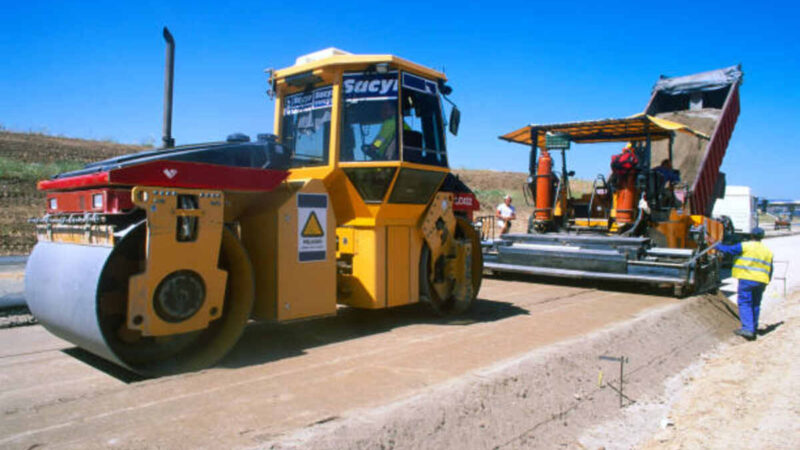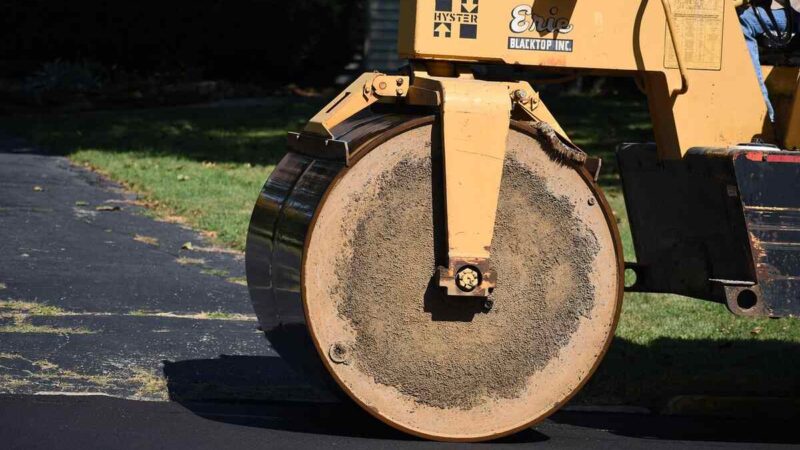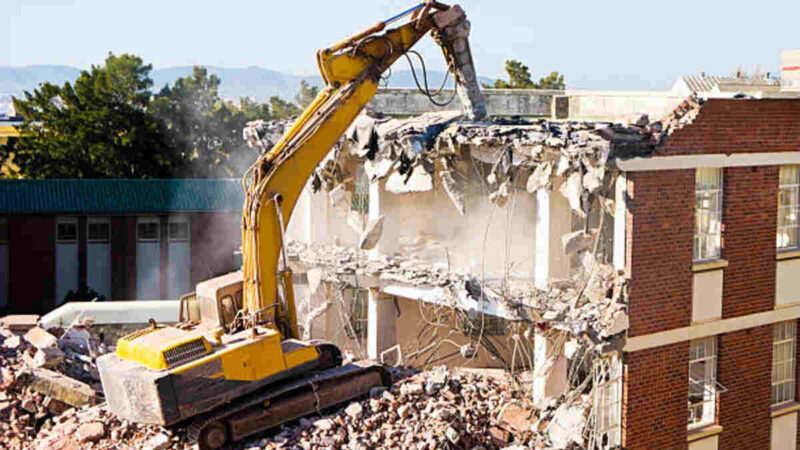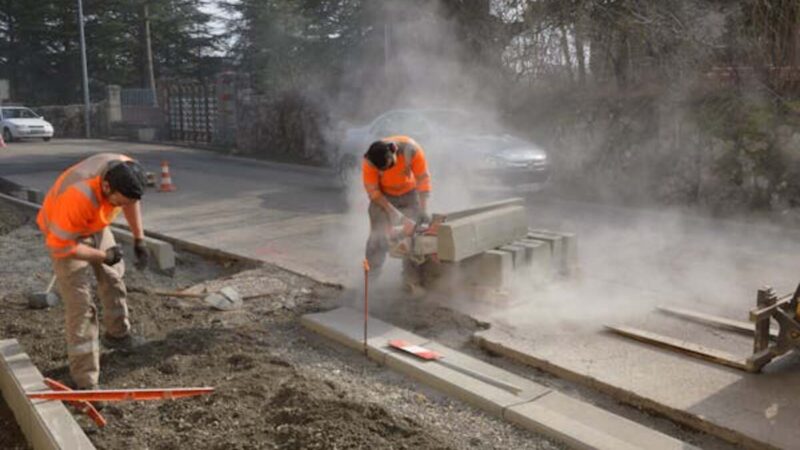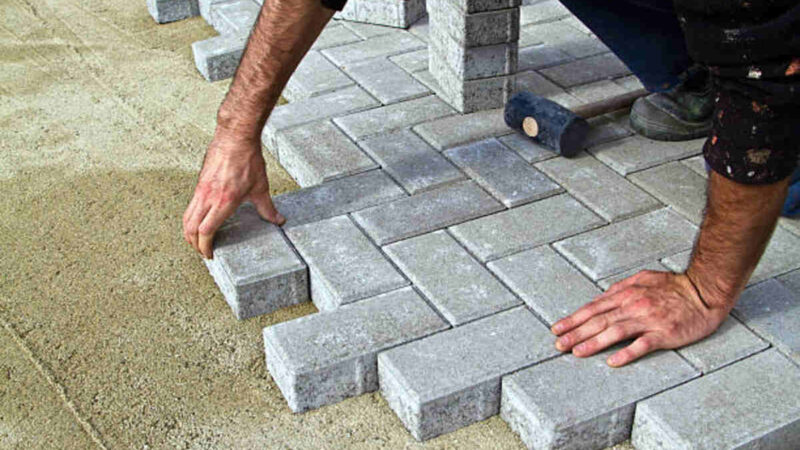How to Hire Reliable Demolition Experts
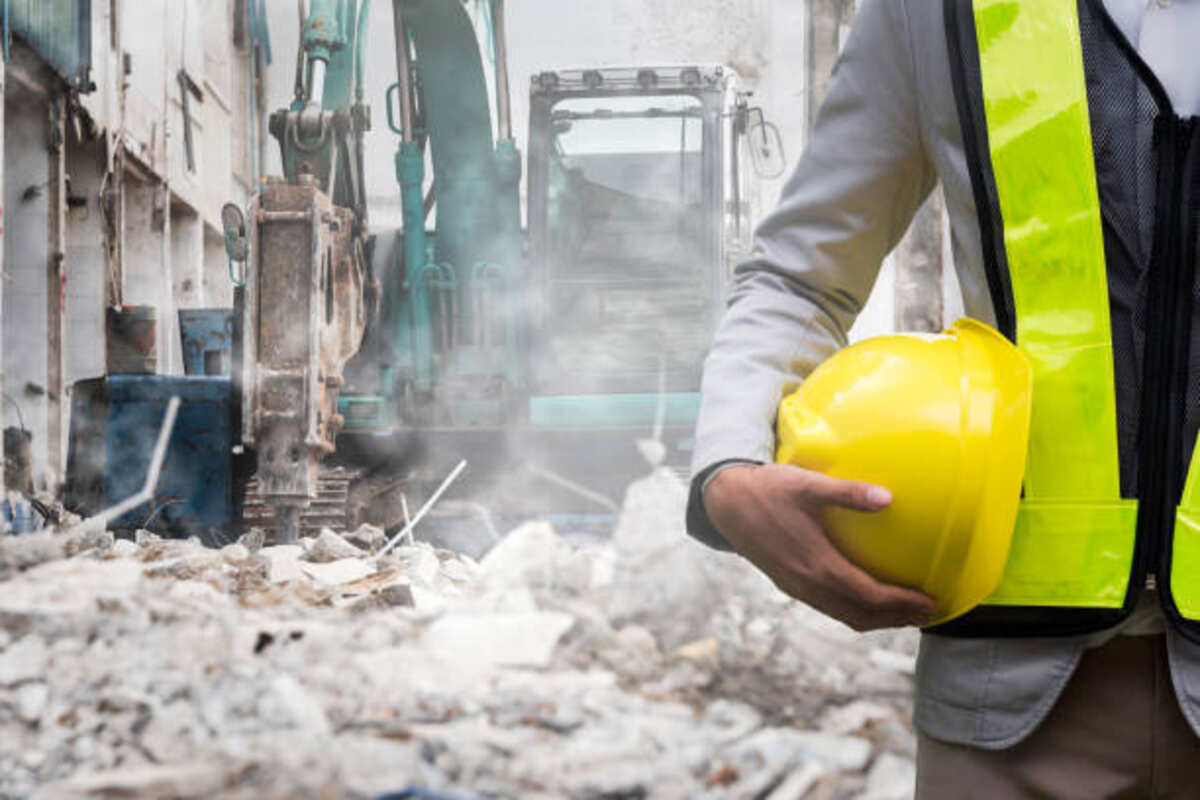
Ensuring you have top-notch demolition experts on your team is crucial for a successful project. These professionals handle the tearing down of old structures, clearing out hazardous materials, and preparing sites for new construction. They’re the unsung heroes who make way for modern buildings, roads, and public spaces. In this guide, we’ll explore how you can hire reliable demolition experts, starting from understanding your project requirements to signing the final contract. Throughout this article, we’ll share best practices, highlight potential pitfalls, and reveal those “undeniable secrets” that make the hiring process a breeze. Often the Amazing fact about San Bernardino Demolition Services.
You might be asking, “Why not just pick the first demolition contractor you find?” Well, consider the sheer complexity of safely removing a building. It’s not just about swinging a sledgehammer. There are strict regulations, environmental concerns, and community safety protocols to keep in mind. By hiring highly skilled demolition experts, you ensure that the work proceeds smoothly, preventing potential health hazards or costly damages. Ready to learn more? Let’s dive in.
Understanding the Role of Demolition Experts
What Exactly Do Demolition Experts Do?
Demolition experts are professionals trained in dismantling structures methodically and safely. They don’t just tear things down; they plan, strategize, and execute with military precision. They know how to handle different building materials—from concrete to steel—and follow strict safety guidelines to protect workers and the surrounding environment. These experts also consider factors like noise pollution, dust control, and debris disposal so neighbors aren’t inconvenienced during the demolition phase.
Common Demolition Services Offered
When you talk about demolition experts, you’re referring to a broad range of services:
- Building Demolition: Complete teardown of residential or commercial properties.
- Selective Demolition: Removal of specific parts of a structure (e.g., interior walls, ceilings) while preserving other areas.
- Deconstruction: Careful dismantling of a structure to salvage reusable materials.
- Implosion: Using explosives in a controlled manner to collapse large buildings or bridges inward.
Some demolition experts specialize in niche areas—like asbestos removal—while others offer an all-encompassing package that includes site clearing and waste disposal. Understanding these diverse services helps you narrow down the type of contractor you need.
Why Specialized Skills Matter
Demolishing a house, storefront, or industrial complex is far more complicated than you might think. An experienced demolition crew:
- Knows the best approach to break down concrete, steel beams, or other structural components.
- Minimizes the risk of structural collapse or unintended damage to adjacent properties.
- Complies with local regulations on noise levels, debris handling, and hazardous waste disposal.
- Works with specialized equipment (e.g., excavators, skid steers, bulldozers) that require proper licensing and training.
Without the right skill set, a demolition project can become a logistical nightmare. Hiring unqualified individuals could result in injuries, accidental property damage, or steep fines from regulatory bodies. This is precisely why you need credible demolition experts. If you value peace of mind and a job done right, specialized skills shouldn’t be optional—they’re a must.
Assessing Your Project Requirements
Determining the Type of Demolition
Before you search for demolition experts, clarify what kind of demolition you need:
- Full Demolition: Complete teardown from top to bottom.
- Partial Demolition: Might include removing an attached garage or interior walls while preserving the main structure.
- Selective Demolition: Typically used for remodels, where only certain components (like wiring or plumbing) are removed.
Establishing your project’s scope helps in pinpointing the right demolition experts who specialize in that particular type of work.
Budget Considerations
Cost plays a huge role in any construction-related project. While it’s tempting to opt for the cheapest bid, remember that demolition experts offering surprisingly low quotes may cut corners—endangering safety. It’s wise to set a realistic budget that accounts for:
- Labor: The size and skill level of the crew, plus hours required.
- Permits: Local authorities often require permits for demolition work.
- Equipment Rental: Excavators, bulldozers, and other specialized machinery.
- Debris Removal: Hauling away rubble to approved landfills or recycling centers.
Plan thoroughly so unexpected costs don’t derail your project halfway through. Some demolition experts will offer package deals that bundle services like waste disposal, which can sometimes save you money in the long run.
Project Timeline
It’s equally important to figure out the timeline. Are you in a rush because the new building’s construction is scheduled immediately after? Or do you have flexibility? Demolition experts often coordinate with other contractors—like plumbers or electricians—before starting demolition. A well-planned schedule ensures all parties align, reducing costly delays.
Regulatory and Environmental Factors
Make sure to check local building codes and environmental guidelines. Demolition experts must follow regulations regarding noise, working hours, and dust control. You may also need to notify neighbors in advance if the project is especially large. By taking these steps, you’ll avoid community complaints or hefty fines.
Researching and Shortlisting Potential Contractors
Online vs. Offline Research
Nowadays, searching for demolition experts begins online. Review websites, social media, and professional platforms can give you insight into a contractor’s reputation. Look for detailed customer feedback—both good and bad—to get a balanced view of their work quality.
Still, don’t underestimate offline methods. Local home improvement stores, building supply shops, or even neighbors who’ve recently undergone renovations can be invaluable sources of referrals. When you combine both online and offline research, you get a holistic view of potential contractors.
Checking Credentials and Reviews
After compiling a list, it’s time to check credentials:
- Business License: Verify that the company is legally registered.
- Insurance: Confirm they carry general liability and workers’ compensation coverage.
- Certifications: Look for safety certifications or accreditations from industry associations.
- Portfolios: Ask to see past projects and note their quality and complexity level.
Customer reviews can also paint a picture of a contractor’s reliability. While a few negative reviews don’t necessarily spell disaster, consistently poor feedback should raise red flags. Ensure that the demolition experts you’re considering are known for timeliness, professionalism, and quality results.
Asking for Referrals
Word of mouth remains one of the strongest indicators of quality. If a friend or colleague had a great experience with certain demolition experts, you can expect a similar standard of work—especially if your project is of comparable scope. Always ask for references from recent clients, and don’t hesitate to contact them. Questions like “Were you satisfied with the timeline?” or “Were there any unexpected costs?” can help you gauge whether this contractor is a fit for your needs.
Creating a Shortlist
Once your research is done, narrow down your options. Stick to three or four top contenders. This approach lets you focus on in-depth comparisons rather than juggling too many possibilities. At this stage, you’ll typically start the quoting process to get a clearer picture of costs and timelines.
Verifying Licenses, Insurance, and Certifications
Why Proper Licensing Matters
Demolition projects involve heavy machinery, structural manipulation, and handling of hazardous materials like asbestos or lead paint. A valid license ensures that the demolition experts have met the necessary requirements and have been vetted by local authorities. Licensing also indicates an understanding of applicable laws and best practices—reducing the risk of costly legal and safety infractions.
The Importance of Insurance Coverage
Accidents can happen on any job site, and demolition is riskier than most. Without adequate insurance, you could be held responsible for medical bills if someone is injured, or for property damage if the work goes awry. Here are the main types of insurance you should verify:
- General Liability Insurance: Covers damage to your property or surrounding areas.
- Workers’ Compensation: Protects you from liability if a worker is injured on your property.
- Vehicle and Equipment Insurance: Ensures that any mishaps with machinery don’t fall back on you.
If a contractor is hesitant to show proof of insurance, treat it as a major red flag. Reliable demolition experts gladly provide documentation because they understand the importance of transparency.
Recognizing Relevant Certifications
Some demolition experts go above and beyond the basics by getting certified in areas like:
- Hazardous Materials Handling: Specialized training in managing and disposing of asbestos or lead-based paint.
- OSHA Compliance: Demonstrates commitment to safety and adherence to federal standards (see OSHA’s Construction Industry Regulations for more details).
- Environmental Safety: Credentials that prove they use eco-friendly demolition techniques or recycling initiatives.
These certifications signal a higher standard of professionalism. While they may come with a slightly higher price tag, they often provide better long-term value—especially if your project involves specialized conditions or materials.
Requesting Quotes and Comparing Bids
How to Request Quotes
Begin by providing clear details about your project:
- Type of demolition required
- Size and dimensions of the structure
- Any known hazardous materials on-site
- Expected timeline and budget constraints
The more specific you are, the more accurate and comparable the quotes will be. Request quotes in writing, and ask for a breakdown of costs so you know exactly what each line item represents.
Analyzing Quote Components
When the bids come in, pay attention to:
- Labor Costs: How many workers will be on-site, and what is their hourly rate?
- Equipment: Will they bring their own machinery or need to rent? Is that cost included?
- Permits and Licenses: Are these fees covered, or do you need to handle them separately?
- Waste Disposal: Some demolition experts bundle this into a single quote, while others treat it as an add-on.
Compare apples to apples. A quote that’s higher upfront may include aspects that a lower bid excludes (like comprehensive waste management). Weigh these variables carefully before deciding.
Negotiating Costs
It’s not taboo to negotiate, but do so respectfully. If you see a quote that’s significantly out of range, ask the contractor to justify it. Perhaps they use advanced equipment or have additional certifications that command a premium. Alternatively, if the cost is too high for your budget, inquire about possible adjustments—like focusing on a partial demolition instead of a full teardown, if that’s feasible. Good demolition experts will be transparent about their pricing, and you can work toward a mutually beneficial arrangement.
Checking Safety Protocols and Environmental Responsibility
Comprehensive Safety Training
Demolition is inherently dangerous, so ensuring that the crew is well-trained isn’t just good practice—it’s essential. Ask potential demolition experts about their safety record and training programs. Do they hold regular safety briefings? Are crew members certified in first aid or CPR? A solid safety culture often indicates a reliable, professional outfit.
Handling Hazardous Materials
Old structures could contain asbestos, lead paint, or mold. Proper disposal of these materials is regulated, and contractors must follow strict procedures to avoid contamination or health risks. Ask how the demolition experts handle hazardous materials. If they lack clear protocols, consider a different company. Cutting corners in this area can lead to serious legal liabilities and long-term environmental damage.
Eco-Friendly Demolition Techniques
With growing environmental awareness, many demolition experts prioritize sustainability by recycling materials. Concrete, metal, and wood can often be repurposed or recycled, reducing landfill waste. Eco-friendly demolition might cost slightly more, but it’s an investment in a cleaner environment. It can also improve your reputation within the community if you’re managing a high-profile project.
Signing Contracts and Finalizing Agreements
Understanding Contract Terms
Never sign on the dotted line without thoroughly reviewing the contract. Key items include:
- Scope of Work: A detailed list of tasks to be completed.
- Timeline: Start and end dates, along with specific milestones.
- Payment Schedule: How and when payments will be made, including any deposits or progress payments.
- Penalties: Clauses covering damages if either party fails to meet obligations.
Review these terms carefully, and if something seems off, ask for clarification. Many reliable demolition experts are open to negotiation or revisions to accommodate your project’s unique needs.
Setting Project Timelines and Milestones
Clear timelines help both you and the contractor. Outline phase-by-phase completion—like initial site inspection, structural teardown, debris removal—so everyone knows what to expect and when. Demolition experts who consistently meet deadlines demonstrate reliability and professionalism.
Payment Structures and Final Settlement
Most contractors ask for a deposit upfront, followed by stage payments based on progress. A common plan might include:
- 30% deposit upon signing
- 40% during demolition
- 30% upon project completion and site cleanup
Always retain a final payment until you’re fully satisfied with the work. This approach ensures the contractor remains committed to finishing the job according to agreed-upon standards.
Effective Communication and Project Management
Establishing Clear Communication Channels
Designate a primary contact person—either you or a site manager—who will liaise with the demolition experts. Whether via phone, email, or in-person meetings, having a go-to communication method prevents confusion. Demolition can be noisy and hectic; strong communication channels minimize missed updates or misunderstandings.
Regular Updates and Progress Reports
Consistent feedback is key. By requesting updates every few days, you can monitor the pace and quality of work. Reputable demolition experts won’t mind sending photos or brief reports, especially if you can’t be on-site frequently. This transparency helps you catch potential issues early—like unexpected structural complications or weather-related delays—before they escalate into bigger problems.
Handling Unexpected Challenges
Even the best-planned demolition projects can face hiccups. Perhaps there’s more asbestos than initially detected, or an adjoining structure needs reinforcement. A contractor’s flexibility and creative problem-solving skills are crucial. When challenges arise, the goal is to find quick, safe, and cost-effective solutions. Reliable demolition experts are adaptive, offering suggestions to minimize downtime and additional costs.
Top 6 Frequently Asked Questions (FAQs)
How do I know if demolition experts are truly qualified?
Look for valid licenses, insurance coverage, and specialized certifications. You can also check professional associations or local government directories to confirm legitimacy.
Is a permit always required for demolition?
Most localities require permits, especially for structural teardowns. Always confirm with your city’s building department before work begins to avoid legal complications.
What if my property contains asbestos or other hazardous materials?
Specialized demolition experts can handle hazardous materials safely. They’ll follow regulated disposal procedures and may test for hidden threats before starting the main teardown.
Can demolition work be done in bad weather?
Light rain or cold temperatures might not halt operations entirely. However, severe conditions—like heavy storms or extreme winds—can pose safety risks. Demolition experts typically monitor the forecast closely.
How long does the typical demolition project take?
It varies by size and complexity. A small residential project might finish in a few days, while larger commercial demolitions can take weeks or months. Your contractor should provide a clear timeline.
Will I need to handle debris disposal myself?
In most cases, demolition experts include debris removal in their service package. Always clarify who is responsible for hauling waste to appropriate recycling centers or landfills.
Conclusion
Hiring demolition experts is a critical step in any major construction or renovation endeavor. From small home remodels to vast commercial undertakings, the key is doing your homework—understanding your project’s needs, verify credentials, and demand transparent quotes. You should also pay close attention to safety practices, environmental stewardship, and effective communication. By following this comprehensive guide, you’re well on your way to collaborating with demolition experts who consistently deliver safe and efficient results.
Whether you’re tearing down a dilapidated shed or making room for a state-of-the-art facility, remember that reliability matters. Demolition experts who boast proven track records, proper insurance, and thorough safety protocols are worth the investment. Cutting corners might save a few dollars upfront but can lead to hefty fines or safety hazards down the line.
The process needn’t be stressful. Armed with these “undeniable secrets” and a well-organized plan, you can breeze through the hiring phase and watch your project unfold without major hiccups. Keep an optimistic outlook—each teardown paves the way for something new and exciting, whether that’s a revamped home or a groundbreaking commercial space. Once the site is cleared and ready, you’ll be one step closer to turning your dreams into a reality.



